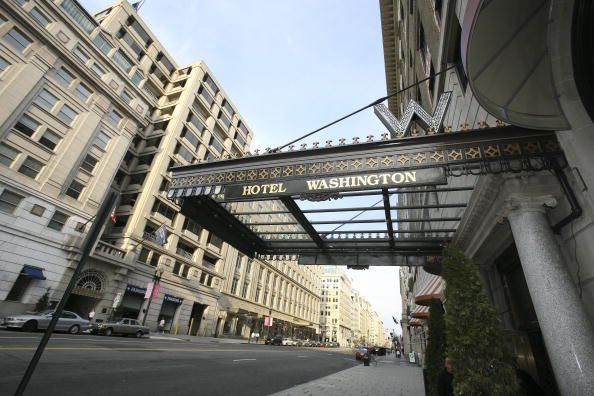Starwood-Anbang: Largest-Ever Chinese Acquisition Of An American Company Tests US Tolerance

When Chinese oil giant CNOOC made a bid for U.S. energy company Unocal in 2005, casual observers might have thought it was an act of war. Congress erupted into a firestorm, crying that “Red China” was looking to dominate American energy markets. Rep. Nancy Pelosi, D-Calif., even warned that the Chinese government-backed CNOOC was looking “to do nuclear tests underground” with Unocal technology.
In the maelstrom that ensued, CNOOC withdrew its offer, citing the congressional pushback. “It was that political opposition which tipped the balance,” a Chinese banker said at the time.
Since then, Chinese acquisitions of U.S. companies have swelled to more than $50 billion over the past decade. Most recently, Starwood Hotels & Resorts Worldwide signed an agreement to be acquired by China’s Anbang Insurance Group in a $13 billion deal that could become the biggest Chinese takeover of an American company yet.
Clearly, times have changed since 2005. Public attitudes toward Chinese investment in American businesses have become complacent — despite lingering concerns over national security interests — as waves of capital flowing from across the Pacific have grown in size and number.
“There is certainly resistance, but it has dramatically changed,” said Siva Yam, an investment banker and president of U.S.-China Chamber of Commerce in Chicago.
Even with presidential contender Donald Trump blaming China for America's economic woes, Chinese acquisitions have become less attention-grabbing. “There have been so many investments since then from China that there’s definitely a greater familiarity,” said Andrew Szamosszegi, principal of Capital Trade Inc., referring to the CNOOC bid for Unocal in 2005.
Chinese investors have been on a record acquisition tear recently, scooping up everything from movie theater operator AMC Entertainment to General Electric’s former appliance business. Concern in Congress over particular deals, meanwhile, has diminished since the CNOOC flap. “You don’t get the same decibel level as you did back then,” Szamosszegi said.
It all depends, of course, on the industry that's affected. The proposed Unocal-CNOOC deal came at the peak of the U.S. energy deficit in 2005, and politicians were touchy over any foreign involvement in American oil production.
In February, when a Chinese investment group floated an offer to buy the Chicago Stock Exchange, 45 senators signed a letter asking the government to conduct a “full and rigorous investigation” into the deal, which would be the first time a Chinese firm gained access to the $22 trillion U.S. equity market.
It’s up to the multi-agency Committee on Foreign Investment in the U.S. (CFIUS) to monitor overseas tie-ups that could present national security threats. In November, the Chinese-owned Ralls Corp. was forced to sell a recently purchased wind farm in Oregon that overlooked a naval weapons training facility.
But Chinese buyers have become more attuned to what might raise red flags for U.S. authorities. “There’s a sense that there are some things that are in play and some things that may be more sensitive,” Szamosszegi said.
Starwood, which runs hotel brands including Sheraton, W and Westin — and was also weighing a takeover offer from Marriott — is attractive not just for its core business, but also for the real estate its properties occupy. Of the $15.7 billion in Chinese investment in the U.S. in 2015, roughly a third took place in real estate and hospitality, which provide promising opportunities for Chinese investors worried about flagging economic growth at home.
Although hotels may seem relatively benign from a national security standpoint, CFIUS examiners could raise a few targeted concerns should Anbang win its bid for Starwood. The Treasury Department, which heads the CFIUS, sits directly in the shadow of the Starwood-owned W Hotel in Washington.
Authorities scrutinized Anbang’s previous $2 billion acquisition of the famed Waldorf Astoria Hotel in New York, where President Barack Obama used to stay while visiting the United Nations. That deal eventually passed muster and was completed last year.
“There may be some concerns of looking over the Treasury Department, but it’s not enough to torpedo the deal,” Szamosszegi said. “But you will definitely get complaints.”
© Copyright IBTimes 2024. All rights reserved.






















